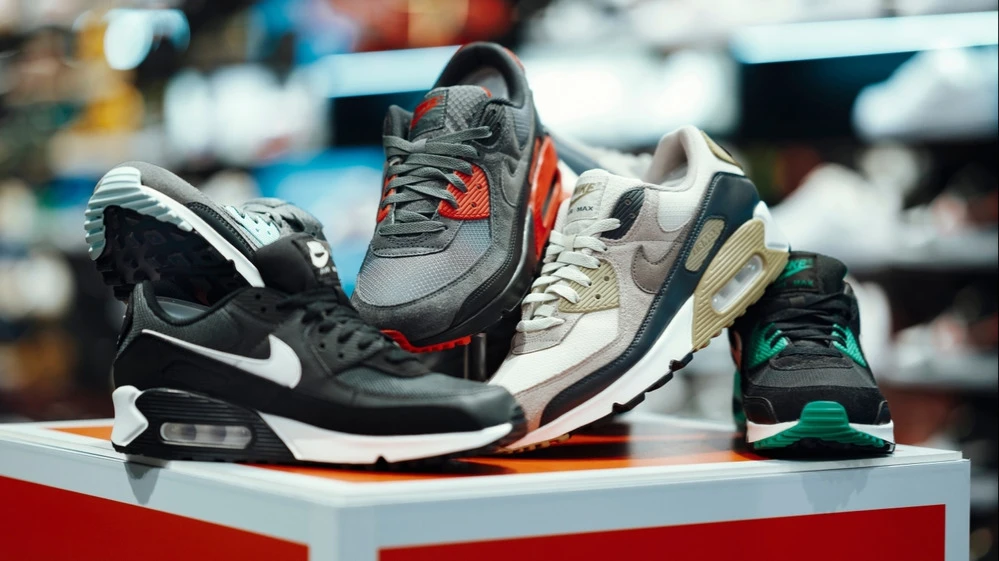Wall Street awaits Nike's 'painful' quarterly report. Should investors be worried?
Nike is trying to sell off outdated models at discounted prices and faces high duties on imports from China

Updated: after the close of trading in New York, Nike reported an 11% drop in fourth-quarter revenue - that's less than analysts' expectations. Adjusted earnings came in at $0.14 per share - 86% worse than it was for the same period a year ago. Nike shares were downfalling 2% in extended trading on June 26 after rising 2.8% in the main session.
Athletic footwear and apparel maker Nike is likely to report a 15% decline in revenue in the previous quarter on June 26 - due to pressure from duties and heavy discounts on its outdated range, analysts predicted. At the same time, Wall Street is hopeful that Nike's most difficult period is behind it: the tough fiscal year is over and new CEO Elliott Hill's initiatives are yielding early results, writes Barron's.
Details
Sneaker and sportswear maker Nike's report for the fourth quarter of 2025, ending May 31, will be "painful," according to Jefferies analyst Randall Konik, as quoted by Barron's. That said, he believes Nike has already bottomed out and is ready to rebound.
"The fourth quarter should be a pivot point on key metrics as the company continues to clear excess inventory from warehouses and streamline sales channels," Konik wrote. - Expectations for fiscal 2026 are already subdued, so the soft outlook is already priced in. We see progress in selling off inventory, innovating new products and rebuilding wholesale partnerships as our key benchmarks."
According to FactSet, analysts expect quarterly revenue to decline about 15% from a year ago to $10.7 billion, with earnings falling to $0.13 per share from $1.01 a year earlier.
Shares of Nike have dropped 18% since the beginning of January and 34% over the past 12 months. However, the sneaker maker's stock was up 2.5% in trading Thursday, before its earnings release.
What the company faced
According to Placer.ai, which uses mobile data to estimate the total number of customer walk-ins, traffic at Nike retail stores has fallen for eight consecutive months, although the decline is slowing. The company has announced massive discounts with which it is clearing out warehouses ahead of the launch of new models. But as Evercore analysts note, the process has been "clearly more difficult than expected," and that could mean the company's profits still have room to decline, CNBC writes.
Nike is also suffering from U.S. duties on imports from China, which President Donald Trump has raised to 30 percent: this affects margins, as most of Nike's shoes are made in Asia. In addition, the first product from a partnership with Kim Kardashian's Skims brand, which was supposed to be released this quarter, has been delayed until the end of the year, CNBC previously reported.
Conditions in Nike's key China market have also deteriorated, further weighing on investor sentiment, Evercore added.
At the same time, the bank notes positive signals: new models with innovative designs are resonating with customers, and recent price increases in various categories may offset rising costs due to duties - as long as they don't drive customers away.
Consumer sentiment rebounded slightly from the previous quarter, and Nike may have benefited from a relatively strong April, with many shoppers buying in advance for fear of higher prices. However, that effect was short-lived - U.S. retail sales dropped more than expected in May.
What Nike is doing
Nike CFO Matthew Friend made it clear back in the spring that it was the fourth quarter that would be the measure of the effectiveness of new CEO Elliott Hill's strategy.
"It is in the fourth quarter that we will see the greatest impact of the [company improvement] Win Now program. From that point on, the pressure on revenue and margins will start to gradually ease," he said on the third-quarter earnings conference call (quote by Barron's).
Hill's other moves include rebuilding relationships with wholesale partners that were severed under previous CEO John Donahue, as well as investing in sports innovation.
Hill is overhauling its management team. The company has appointed or promoted nearly a dozen top executives since October in what TD Cowen analyst John Kernan said was "the most sweeping personnel realignment in decades" in the sector, writes Barron's.
Nike announced price increases on some items, especially shoes more expensive than $100. In addition, offline traffic to offline stores improved, declining just 3.2% year-over-year in May, compared to a 10.2% drop in April and an 8.2% drop in March. Online traffic has also improved, with consumers responding positively to new releases including the Vomero 18 and Pegasus Premium sneakers, said Raymond James analyst Rick Patel.
"This supports the assumption that Nike's major sales decline is behind us," he wrote in a note quoted by Barron's. Patel gave the stock a "hold" rating.
In total, of the 42 analysts tracking the sneaker maker's stock, 19 recommend buying it, 21 recommend holding it in their portfolios, and only two advise selling it. The Wall Street consensus price target is $71.1 per Nike share, up 17% from the closing price on June 25.
This article was AI-translated and verified by a human editor
